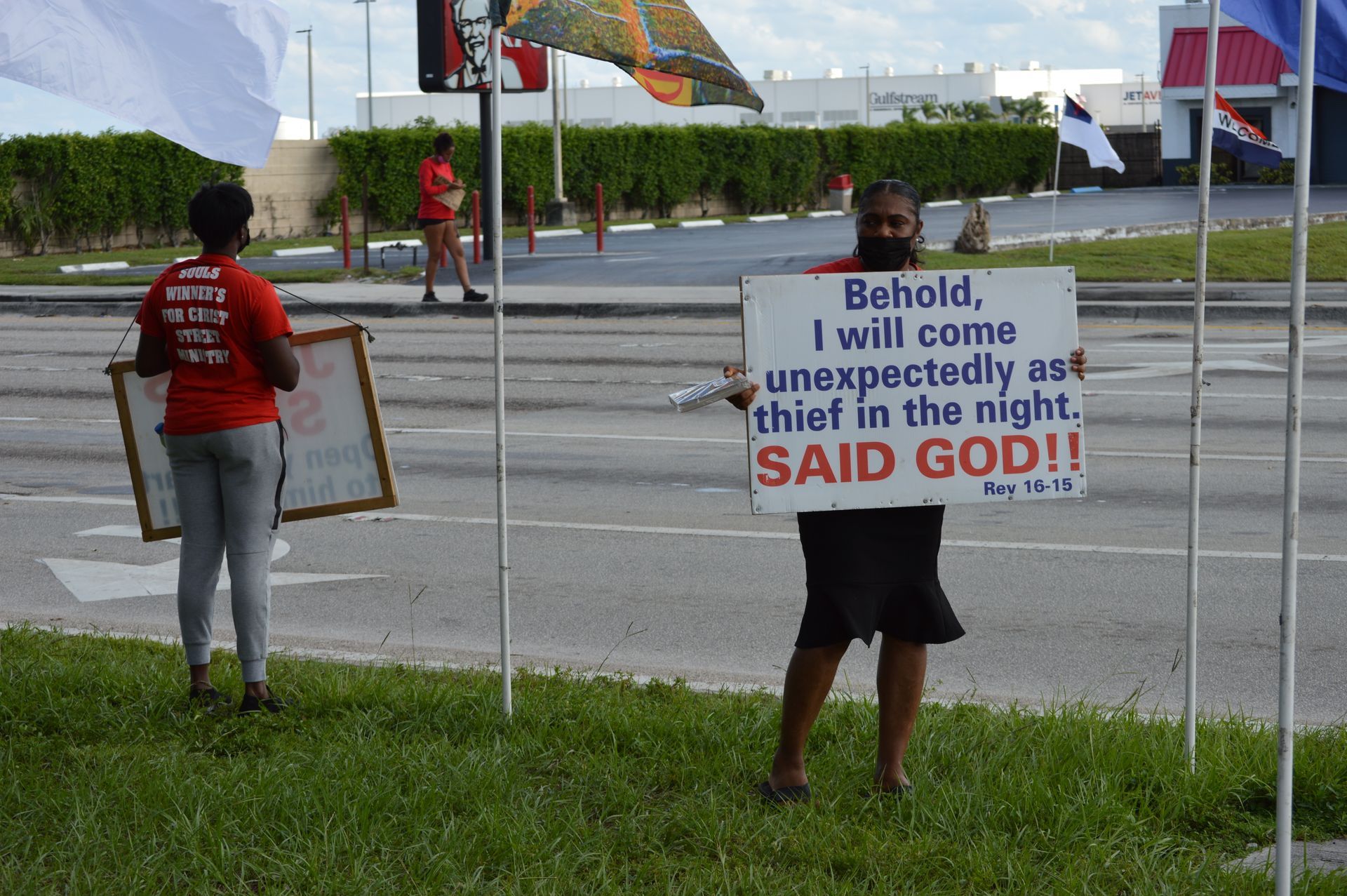Misconceptions at the Lord’s Supper
Paul visits Corinth during his second missionary journey (Acts 18). He joins with fellow
preachers and tent or leather workers, Aquila and Priscilla, who come from Rome amidst Jewish
persecution (Acts 18:1 – 3). Paul stays in Corinth for a year and a half laying the foundation for
the gospel (1 Cor. 3:10 – 11). He leaves Corinth by ship (probably A. D. 51) headed for
Jerusalem. He leaves Aquila and Priscilla in Ephesus (Acts 18:21), himself hoping to arrive in
Jerusalem before the Feast (Passover or Pentecost, we are not sure). Soon returning to Antioch,
he leaves from there for Ephesus. He stays in Ephesus for two and a half years (possibly AD 52
to 55). It is during this time that Paul wrote 1 Corinthians (421).
Date
The letter gives a reference that helps to succor a fixed date for I Corinthians. An inscription
from Emperor Claudius to Gallio, the proconsul in Achaia during the period of Claudius’s
twenty-sixth acclamation as imperator (first seven months of A. D. 52). (447)
If the Jews attacked Paul (Acts 18:12) during Gallio’s early proconsulship, then thereafter, the
case was dropped (autumn AD 51), Paul stays in Corinth for only a short time following (Acts
18:18). Paul then sails for Syria (possibly during the spring of AD 52). Paul is then in Ephesus
for two and a half years, during which time he writes I Corinthians, sometime before Pentecost
(Acts 16:8) – early in 55 (448). The following year, Paul completes 2 Corinthians.
The following is a brief outline of 1 Corinthians:
- Paul attacked a “party spirit” at the Corinth church.
- The church was not satisfied with Paul’s leadership (1 Cor. 4:3, 15; 9:1 – 2).
- Abuses at the Lord’s table (11:17 – 34).
- Sexual immorality (5:1 – 5; 6:12 – 20).
- Litigation among members (6:1 – 8).
- Marriage (chap. 7).
- Eating food offered to idols (chap. 8).
- Charismatic gifts and mutual love (chaps. 12 – 14).
- The resurrection (chap. 15).
- The church sent questions to which Paul responded by letter that is now lost (1. Cor.5:9).
- Paul’s “painful visit” (1 Cor. 4:21, 2 Cor. 2:1). We are not clear which visit and letter this pertains to.
- From Paul’s perspective, the “painful visit” was a complete fiasco (423).
- Someone had attacked Paul in deeply insulting ways (2 Cor. 2:5 – 8, 10; 7:12).
- (423)
- Titus delivers Paul’s “tearful letter” (423). Titus may have been a more
- forceful person than Timothy.
I want to attempt to answer three questions today:
1. What were the problems at the Lord’s Supper in Paul’s day?
2. What are the present-day abuses of the Lord’s Supper today?
3. What is the purpose and meaning of the Lord’s Supper?
Main Idea: We are to celebrate the Lord’s Supper because of Christ’s atoning death on the cross
for our sins. As a result of Christ’s death and resurrection we have peace with God, the
forgiveness of sin, fellowship, and joy.
1. What were the problems at the Lord’s Supper in Paul’s day?
Divisions and heresies, vs. 18 – 19.
Some had relegated the Lord’s Supper to a potluck. Tradition has called these “love
feasts.” vs. 20 – 22.
o They were not waiting for everyone to get there.
o They were eating and sharing only with those of like income status. Thus, the
poorer members did not have anything to eat.
o The supper had turned into gluttonous eating and drunken parties.
1 Cor 11:20 – 22, NIV:
20 So then, when you come together, it is not the Lord’s Supper you eat, 21 for when you are
eating, some of you go ahead with your own private suppers. As a result, one person remains
hungry and another gets drunk. 22 Don’t you have homes to eat and drink in? Or do you despise
the church of God by humiliating those who have nothing? What shall I say to you? Shall I
praise you? Certainly not in this matter!
- Remark: The Lord’s Supper had turned into a parade of the “Haves and Have Nots.”
Jesus had been replaced by a social gathering. Therefore, Paul responds to them in the
affirmative, “I praise you not.” (vs. 17)
- Remark: The only good in their situation is that they did recognize the joy of the Lord’s
Supper. But they still missed the mark. They were happy but not for Jesus. Sunday was
supposed to be a day of celebration because our Lord had been raised from the grave on a
Sunday. They had fellowship. But this fellowship had turned worldly and carnal.
- Have we misplaced our joy on Sundays? A toddler was standing on a pew next to her
parents during a church service. The couple behind the toddler was making sweet facial
gestures to the child. This caused the toddler to smile. The mother of the toddler told her,
“Stop all that smiling, we’re in church.”
- Remark: Paul’s correction in verses 27 to 29 makes sense now: 27 Wherefore whosoever
shall eat this bread, and drink this cup of the Lord, unworthily, shall be guilty of the body and
blood of the Lord. 28 But let a man examine himself, and so let him eat of that bread, and
drink of that cup. 29 For he that eateth and drinketh unworthily, eateth and drinketh
damnation to himself, not discerning the Lord's body.
2. What are the present-day abuses of the Lord’s Supper today?
- Some believe that the wooden table is sacred.
- Some by tradition held to a concept of transubstantiation. This is the belief that a
substance form and purpose can be changed for some ceremonial purpose. Thus, by
tradition, we heard prayers asking God to change the use of the bread and cup from a
physical state to a sacred or sanctified purpose. This is okay. The error is that there is
nothing sacred about the bread and the juice.
- Some have refused to take the Lord’s Supper because of sin. This is correct. The error is
when the relationship by which the sin occurred is not amended. There are some people
who refused to take the Lord’s Supper because someone offended them. But is this
person of aware of this? Did you have direct communication in meekness with that
person without embarrassing the person or making the person feel uncomfortable?
- The Lord’s Supper is not to be understood as the Passover.
3. What is the purpose and meaning of the Lord’s Supper?
- Christians come together to remember the Lord’s death for our sins.
- Individual repentance as to not break or to restore fellowship between you and the Lord
and between you and fellow believers.
- The sacredness of the Lord’s Supper is the Lord Jesus and you. The symbol of consuming
the bread and the cup is to recognize the controlling presence of Jesus in my life and the
constant reminder that my old sinful nature must be buried in the grave.
- The Lord’s Supper is supposed to be festive. Not festive in the abuse of the early church
but festive in the sense that we rejoice because our Lord and Savior conquered sin, death,
hell, and the grave. And as He promised, we look for His return. That’s good news.
We must stop with the cold worship with no after-party. Our services are dead because of
envy, strife, pride, jealousy, and some are just bitter. A church tour guide was giving
some newcomers a tour of the church. A little boy noticed pictures of people on the wall
in the fellowship hall. The boy asked who they were. The church guide said they had all
died in the service. The little boy then replied, “Was it the 9 o’clock or the 11 o’clock
service?” Church service should not feel like a war zone. Our savior lives. He defeated
our enemy. Let the church rejoice and be in good spirit!
Our Sermons


